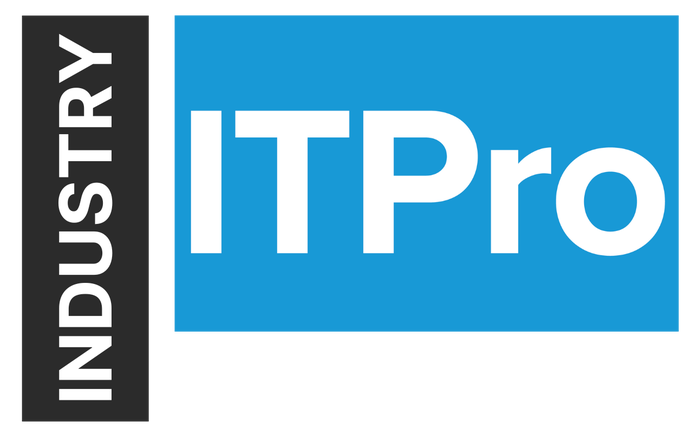
Insight and analysis on the information technology space from industry thought leaders.
Achieving Success in the New Era of AI-Driven Data ManagementAchieving Success in the New Era of AI-Driven Data Management
AI is transforming data analytics by driving personalization, operational efficiency, and real-time insights while demanding robust governance to address data quality, ethical considerations, and regulatory compliance.
November 28, 2024

In today's data-centric landscape, efficient data analytics and management are essential for organizations to make strategic decisions, streamline operations, and maintain a competitive advantage. Artificial intelligence (AI) is transforming data analytics and management, enabling businesses to uncover more profound insights, automate intricate tasks, and improve decision-making processes. As data volumes grow exponentially, traditional data handling methods are proving inadequate. This is where AI steps in, equipping organizations to transition from traditional data management to agile, insight-driven strategies that support the broader AI transformation of operations and elevated industry standards.
Harnessing Data for Personalization and Engagement
AI-driven personalization is essential for companies looking to stand out in a competitive marketplace. By leveraging vast amounts of customer data, AI helps businesses create highly tailored experiences that adapt to individual user preferences, increasing engagement and loyalty. Recent research shows "that 81 percent of customers prefer companies that offer a personalized experience." This statistic is a clear indicator of personalization strategies' impact on customer behavior.
A prime example of AI-driven personalization at scale is Netflix. Its recommendation engine, powered by collaborative filtering, content-based filtering, and hybrid models, drives about 80% of content views. By analyzing viewing patterns, user preferences, and interactions, Netflix's algorithms produce tailored content suggestions, improving user satisfaction and retention. This level of personalization saves Netflix approximately $1 billion annually. These results show the financial and strategic advantages of AI-powered personalization, helping companies build strong customer relationships that drive sustained growth.
Efficiency and Cost Savings Through AI Integration
AI integration drives operational efficiency through various data management functions, such as data cataloging, tagging, and real-time system monitoring, creating an organized and accessible analytic infrastructure. These functions help automate routine tasks, minimize manual intervention, and free up teams to pursue strategic initiatives.
AI excels in predictive maintenance for complex workflows by analyzing logs and metrics to detect potential system issues early, facilitating proactive maintenance that reduces downtime and lowers repair costs. In supply chains, AI enhances demand forecasting and inventory management in real time, reducing overstock and improving turnover.
A notable example of AI integration in supply chain management comes from Walmart. Partnering with Pactum and using its negotiation bot, "Walmart's AI initiatives have yielded significant results. The chatbot, for instance, negotiated with 68% of suppliers approached, gaining 1.5% in savings and extending payment terms. Automation in supply chain is estimated to improve unit cost averages by around 20%." This success illustrates the tangible benefits of embedding AI within operational workflows to drive efficiency and cost savings. Integrating these AI-driven systems into current workflows boosts adoption rates, minimizes disruptions, and allows for gradual AI capability scaling alongside traditional processes.
The Importance of Data Quality and Governance
Without high-quality data, AI cannot deliver accurate insights. AI algorithms require clean, consistent data to perform optimally, making data quality crucial for achieving reliable results. A unified data strategy, with thorough preprocessing and cleaning, directly impacts AI performance, enabling businesses to generate meaningful insights.
Conversely, poor data quality can have costly consequences. Gartner estimates that organizations, on average, lose $12.9 million annually because of low-quality data. Poor data quality reduces AI model accuracy, leading to misguided insights, poor decisions, and ineffective strategies. These challenges impact productivity and drain resources needed for frequent data cleanup and correction.
Robust data governance practices, essential to ensure data quality, involve standardized data collection, lifecycle management, automated cataloging, and cross-functional collaboration. Quality monitoring and continuous improvement protocols are vital, enabling companies to maintain high-quality data that fuels dependable AI-driven insights and supports strategic decision-making.
Challenges and Considerations in AI-Driven Data Analytics
AI-driven data analytics has significant ethical, privacy, and regulatory challenges. Ethical considerations, such as bias detection and mitigation, are necessary to ensure AI models provide fair and accurate outcomes. Implementing governance frameworks and transparency in AI decision-making builds trust by making algorithms' logic accessible and accountable, minimizing the risk of unintended discrimination in data-driven insights.
Data privacy and security are equally critical. The increased use of techniques like differential privacy raises expectations of high privacy standards. Differential privacy adds carefully calibrated "noise" to data sets — random variations designed to prevent the re-identification of individuals while still allowing accurate aggregate insights. By anonymizing data, organizations can derive value without compromising individual privacy. Complementing this approach, data minimization practices (collecting only essential data) help reduce exposure risks, while robust security protocols further protect data integrity.
Regulatory compliance adds another layer of complexity. Regulations like the General Data Protection Regulation (GDPR), the Health Insurance Portability and Accountability Act (HIPAA), and the California Consumer Privacy Act (CCPA) mandate strict adherence to data handling practices, including informed consent and data protection impact assessments. Establishing robust incident response protocols and conducting regular compliance audits help organizations navigate these legal frameworks and reinforce responsible AI usage, ensuring operational integrity and user trust.
Future Trends in AI-Enabled Data Analytics
Emerging technologies in AI will further transform data analytics, with advanced models and infrastructure shaping the future. Enhanced natural language processing (NLP) and automated machine learning (AutoML) will simplify data workflows, making sophisticated analysis accessible across skill levels. Real-time analytics capabilities are also expanding, facilitating real-time action on insights —a critical business advantage in fast-paced industries. On the infrastructure side, scalable cloud solutions and the rise of edge computing are paving the way for faster, more efficient data processing, even closer to the data source.
Preparing for these developments requires technical readiness and organizational adaptation. To build a resilient foundation, companies can invest in scalable data architectures and cloud infrastructure while integrating emerging tools as they become available. Equally important is fostering an innovation culture: Cross-functional team development, industry partnerships, and continuous learning initiatives help organizations stay agile, share knowledge, and drive sustainable AI adoption.
Achieving a Balanced Approach
The AI revolution in data analytics presents unprecedented opportunities and significant ethical responsibilities. While the benefits of personalization and operational efficiency are clear, it's imperative for organizations to navigate the complex balance between innovation and responsible implementation. The key to success lies in robust data governance and in developing frameworks that proactively address bias in AI systems and ensure transparent decision-making processes.
As AI capabilities evolve, organizations that prioritize technical excellence and ethical considerations will be in the best position to create sustainable value while maintaining stakeholder trust.
About the Author:
Animesh Kumar is an enterprise IT, senior solution architect with over 22 years of industry expertise, including more than 10 years of experience designing highly scalable, fault-tolerant applications and cloud-based solutions. Animesh is also actively engaged in research on emerging technologies such as AI, machine learning, and cloud computing. He has authored peer-reviewed articles and participates in judging and reviewing scholarly works. Animesh has a master's degree in computer science from the Illinois Institute of Technology and a bachelor's degree in computer technologies from Nagpur University in India. Connect with Animesh on LinkedIn.
About the Author
You May Also Like








.jpg?width=700&auto=webp&quality=80&disable=upscale)
